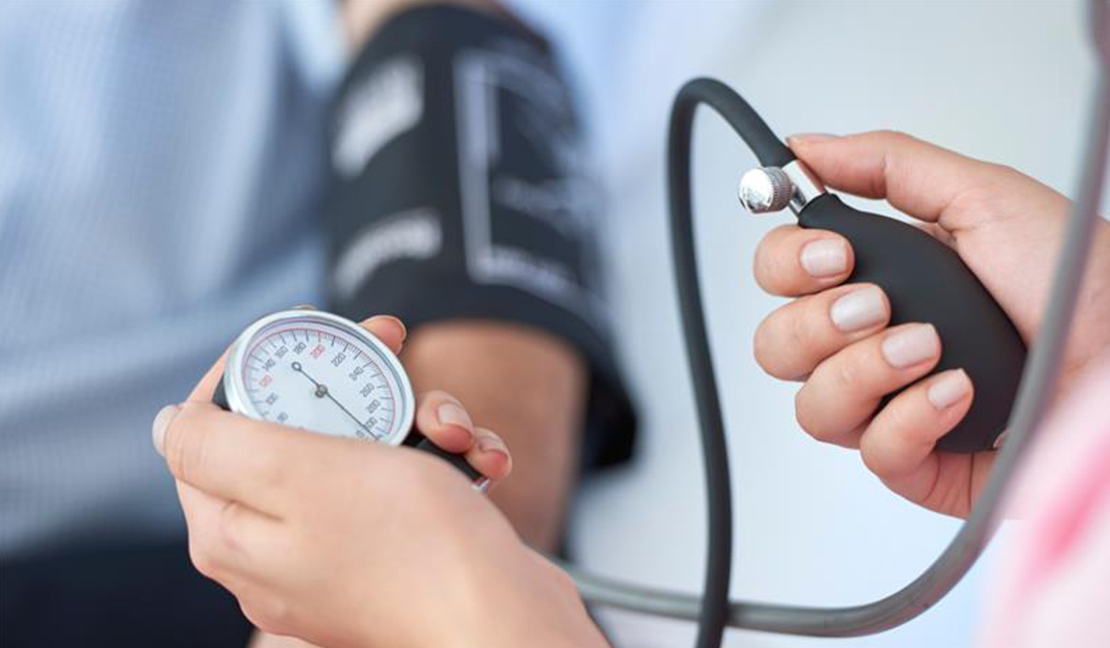
Posted On: July 10, 2025
High blood pressure, or hypertension, is often called the “silent killer.” Not because it causes pain or dramatic symptoms, but because it frequently goes unnoticed until it leads to more serious issues like heart disease, stroke, or kidney problems. It’s one of the most common health concerns globally, and yet many people don’t realize they’re affected until they’re sitting in a doctor’s office, surprised by the numbers on a blood pressure monitor.
Medically, hypertension occurs when the force of blood pushing against your artery walls is consistently too high. A normal reading is around 120/80 mmHg; anything above 130/80 mmHg is considered elevated or high.
Most people with high blood pressure feel completely fine. That’s what makes it dangerous. However, in more advanced stages, it can lead to
But more often than not, there are no obvious symptoms, which is why regular screening is important.
About 120 million adults in the US suffer from hypertension, also known as high blood pressure. It is a major risk factor for kidney failure, heart disease, and stroke. Although the prevalence of hypertension is generally higher in men than in women, gender-sensitive approaches to care are particularly crucial for women because of issues like oral contraceptives, pregnancy-related hypertension, and the effects of menopause.
There are racial disparities as well: While Asian and Hispanic populations demonstrate different patterns of diagnosis and management, Black adults are more likely to have hypertension and frequently develop it earlier in life. Regionally, rates are notably higher in Virginia, Maryland, and Washington, D.C., underscoring the need for targeted public health initiatives in these areas.
In the US, almost half of all adults with hypertension are women. And they are more likely to experience more serious complications and difficulties when it comes to having high blood pressure. While hypertension affects both sexes, certain periods in a woman’s life make it particularly relevant:
It’s important not to ignore these considerations, especially if you have a family history of hypertension or cardiovascular disease.
In many cases, lifestyle changes can reduce blood pressure or delay the need for medication.
A heart-healthy diet isn’t about deprivation; it’s about balance and mindfulness.
Try:
You don’t have to train for a marathon to protect your heart. Consistent, moderate movement is best.
Chronic stress may contribute to high blood pressure, and many women carry emotional loads quietly and alone. Managing stress is as important as any diet or workout.
Sometimes, lifestyle changes aren’t enough, and that’s okay. Hypertension is a condition we manage, not a failure to avoid.
Several classes of medications are used to treat high blood pressure, including
Each individual’s response to medication is different, so it may take time to find the right fit. If you’re prescribed medication, do not stop taking it without talking to your physician, even if you feel fine.
If you’re pregnant, trying to conceive, or breastfeeding, your treatment options will need to be carefully customized to ensure safety for both you and your baby.
Make it a habit to include blood pressure checks in your routine health visits. Even if you’re young and otherwise healthy, hypertension can develop silently over time.
Women with risk factors such as a family history, being postmenopausal, or having had pregnancy-related hypertension should be examined specifically carefully, as a missed detail might result in negative health outcomes for more than one person.
Digital home blood pressure cuffs are widely available and can be helpful, especially if you’re managing hypertension or monitoring changes due to lifestyle or medication adjustments.
When using a home monitor:
In addition, some physicians, including my practice, offer ambulatory blood pressure monitoring when appropriate.
This type of monitoring takes place outside of the doctor’s office, while you go about your normal daily routine. A cuff is worn on your arm and connected to a small, lightweight device worn on a strap or belt. Over a 24-hour period, including both daytime and sleep hours, the device records multiple blood pressure readings, along with your heart rate.
This continuous monitoring provides a more complete picture of your blood pressure patterns. It allows your physician to calculate your average blood pressure over the full day and night, assess how well current treatments are working, and identify any concerning changes that might not show up during a single office visit.
Monitoring hypertension is a key part of managing your overall cardiovascular health. Other important factors to track include cholesterol and blood sugar levels, as they often contribute to heart disease risk.
To support a more complete understanding of heart health, our practice now offers a Cardiovascular Risk Assessment. This simple, non-invasive screening, often performed during your annual exam, evaluates key risk factors and helps identify early signs of concern. The assessment includes a detailed review of your results, a discussion of evidence-based lifestyle changes, and individualized recommendations to help you protect your heart for life.
If you take one thing away from this guide, let it be this: you should care for your heart with the same kindness you offer to others.
Hypertension doesn’t define your health; it’s a condition to be understood and managed. Whether you’re in your 30s and want to live your life fully, navigating menopause, or recovering from a complicated pregnancy, your awareness and attention are already powerful steps forward.
If you ever feel unsure or overwhelmed, reach out to a physician who will listen without judgment and offer you a custom solution that will fit your unique case.

Even though National Wear Red Day is one day a year, heart health is everyday health. Blood pressure, cholesterol, inflammation, sleep, stress—each plays a role in protecting your heart over time. Prevention isn’t about one test or one visit; it’s about ongoing, proactive care built around you. Your heart deserves that level of attention. #HeartHealth #PreventiveMedicine #CardiometabolicHealth #ConciergeCare #LongTermWellness #EileenWestMD

Supplements aren't one-size-fits-all. Learn how to choose evidence-based, safe supplements-without falling for hype. Read our blog: https://www.eileenwestmd.com/blog/how-to-choose-and-consume-supplements-safely/ #EileenWestMD #SupplementsSafelyWisely

Joint pain isn’t always “just aging.” Persistent stiffness, swelling, or fatigue—especially in the morning—can be early signs of rheumatoid arthritis. With timely diagnosis and a personalized plan, we can reduce inflammation, protect joint health, and preserve quality of life. If something doesn’t feel right, let’s talk sooner rather than later. #inflammationmatters #jointhealth #preventivecare #conciergemedicine #listentoyourbody #EileenWestMD
Join our Email Newsletter to get the latest and greatest tips on ways to maximize your health, invitations to educational events, and other practice news!
By submitting this form, you are consenting to receive marketing emails from Eileen West, MD and Associates.
